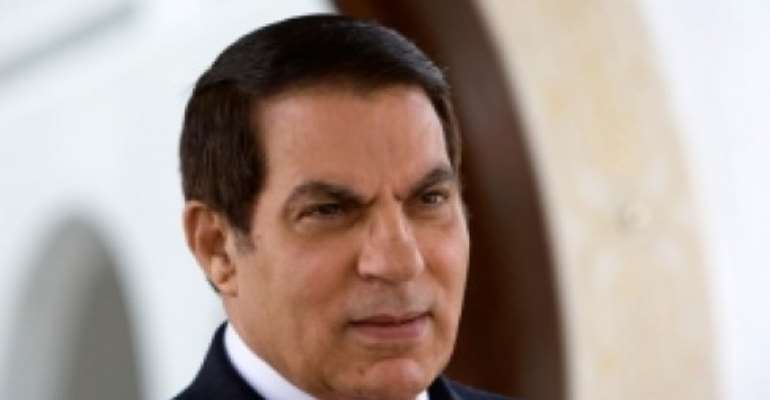Tunisia: President Zine al-Abidine Ben Ali forced out

Tunisia's President Zine al-Abidine Ben Ali has stepped down after 23 years in power, amid widespread protests on the streets of the capital Tunis.
In a televised address, Prime Minister Mohammed Ghannouchi said he would be taking over from the president.
A state of emergency was declared earlier, as weeks of protests over economic issues snowballed into rallies against Mr Ben Ali's rule.
Unconfirmed reports say Mr Ben Ali and his family have left Tunisia.
The reports suggest that the deposed president is looking for a place of asylum, with French media saying that French President Nicolas Sarkozy has turned down a request for his plane to land in France.
Earlier, police fired tear gas as thousands of protesters gathered outside the interior ministry.
Doctors say 13 people were killed in overnight clashes in Tunis, and there are unconfirmed reports that five people have been killed in protests on Friday outside the capital.
A state of emergency decree bans gatherings of more than three people and imposes a night-time curfew. Security forces have been authorised to open fire on people not obeying their orders.
President Sarkozy said he stood side-by-side with the citizens of Tunisia, his country's former protectorate.
"Only dialogue can bring a democratic and lasting solution to the current crisis," said Mr Sarkozy in a statement.
US President Barack Obama condemned violence against Tunisian citizens "peacefully voicing their opinion in Tunisia".
In a statement, he said: "I applaud the courage and dignity of the Tunisian people.
"I urge all parties to maintain calm and avoid violence, and call on the Tunisian government to respect human rights, and to hold free and fair elections in the near future that reflect the true will and aspirations of the Tunisian people."
Mr Ghannouchi, 69, a former finance minister who has been prime minister since 1999, will serve as interim president.
In an address on state television, he promised to "respect the law and to carry out the political, economic and social reforms that have been announced".
Witnesses described how soldiers had begun taking down portraits of Mr Ben Ali - an ubiquitous sign of his authoritarian rule - from billboards and on the walls of public buildings around the country.
Stranded tourists
| Fall from power |
|
Earlier, Mr Ben Ali - who had said in a TV address on Thursday night that he would relinquish power in 2014 - announced that he was dismissing the government and dissolving parliament, and that new elections would be held within six months.
Human rights groups say dozens of people have died in recent weeks as unrest has swept the country and security forces have cracked down on the protests.
The protests started after an unemployed graduate set himself on fire when police tried to prevent him from selling vegetables without a permit. He died a few weeks later.
UK travel agents have scrambled to pull hundreds of tourists out of the country, and companies including Thomson First Choice and Thomas Cook have cancelled flights scheduled to leave for Monastir on Sunday.
The UK, the US and France are among the countries advising against non-essential travel to Tunisia.
"The situation is unpredictable and there is the potential for violence to flare up, raising the risk of getting caught up in demonstrations," the UK Foreign Office said in its latest travel advisory.
In his speech on Thursday night, Mr Ben Ali, who had governed Tunisia since 1987, said there was "no presidency for life" in Tunisia and that he did not intend to amend the constitution to remove the upper age limit for presidential candidates - a move that would have allowed him to stand for a further term in 2014.
The former president, who earlier this week blamed the unrest on "terrorists", also said he felt "massive regret" over the deaths of civilians in the protests.
Mr Ben Ali, 74, was only Tunisia's second president since independence from France in 1956. He was last re-elected in 2009 with 89.62% of the vote.

